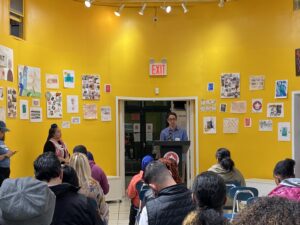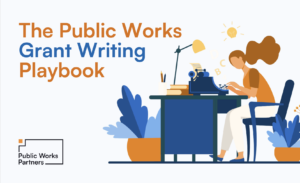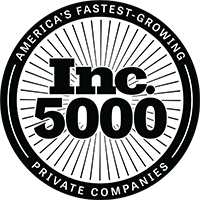Democracies are stronger when citizens are engaged. This statement holds true at the national, state, county, and city level. New York City, as part of its OneNYC initiative, has committed to strengthening public participation and inclusion through democratic innovation that makes participation a key feature of government.
Democratic innovation is the process of reforming democratic institutions to make government more responsive to the needs of its voters. New York City’s stated goals for democratic innovation include expanding voting rights, creating more opportunities for democratic engagement through the Civic Engagement Commission, combat misinformation and hate speech, and developing youth democracy corps and leadership councils. In implementing these programs, New York City government plays a key role in ensuring equitable outcomes and creating stakeholder-driven decision making processes.
“Our democracy is strongest when participation is active and widespread, with residents informing and shaping policies that impact their lives, strengthening their communities, serving their neighbors, and advocating national and global issues critical to our shared future. Only with an engaged public can we hold our political leaders accountable and fully leverage our city as a platform to drive global change.”
From the OneNYC site
One of the chief goals of democratic innovation is to strengthen the ties between citizens and their government. This process begins by understanding the needs of the people. Democracies have an obligation to make policy local and ensure it serves the people that make up their constituency. City governments in particular have an outsized role in ensuring equity and inclusion in communities they serve, whether through city planning, public services, or simply enacting city rules and regulations. One of the hallmarks of a successful participatory program is inclusion.That inclusion means ensuring that demographic groups, income groups, and other communities are fully represented throughout any democratic process.
One example of New York City’s commitment to increasing citizen participation in city government is through NYC Participatory Budgeting (PB). Participatory budgeting is a process through which citizens can vote to allocate funds to specific public projects in their community. NYCPB has directed over $210 million to local projects since it began. In 2019 New York City Charter Review Commission included participatory referenda in developing recommendations for changes to the city charter. The final recommendations included adding ranked-choice voting to all city elections. Alongside New York City government, organizations such as the Participatory Budgeting Project have been advocating for innovation in democracy and developing proposals for transformative democratic tools that cities, states, and nations can use to revitalize their democratic processes.
Other places around the world have engaged in participatory democracy using tools such as sortition, a process by which citizens who represent different demographic groups are selected at random to serve on an assembly, Citizen Councils, and larger, more inclusive participatory budgeting projects. Chile, for example, is in the process of using a citizen council to rewrite their constitution. This council, representative of the various demographic groups in Chile, will propose a constitution to be voted on by popular referendum–another form of participatory democracy. This process is one of the largest-scale experiments in democratic innovation in world history. In Ireland, an assembly of citizens was selected by sortition and made key policy decisions on climate regulations, gender equality, and more.
At Public Works Partners, a key component of our work is amplifying community voices in decision-making processes. Our work with NYC Department of Transportation on the NYC Streets Plan, for example, was predicated on the engagement and involvement of residents to voice their opinions in the decision-making process for their streets. Participatory democracy, via budgeting, voting reforms, sortition, or other innovations can allow citizens to take part in the direct decision making process in their communities, thus rekindling the flame of democratic citizenship and amplifying the voices of all community members. Ensuring accessible and equitable access to participatory tools is a key focus of NYC’s participatory initiatives, but the success of these efforts is a subject for another blog post.
All in all, creating avenues for direct participation in democratic governance is a powerful tool for city, state, and national governments to re-engage their population. Participatory tools can improve equity and inclusion, renew energy in democratic norms, and build social cohesion within the city, and New York City has shown a clear commitment to these outcomes in their embrace of democratic innovation.





 Public Works Partners is a WBE/DBE-certified urban planning and consulting firm. Our expertise lies in creating innovative, equitable, and sustainable solutions to complex problems.
Public Works Partners is a WBE/DBE-certified urban planning and consulting firm. Our expertise lies in creating innovative, equitable, and sustainable solutions to complex problems.